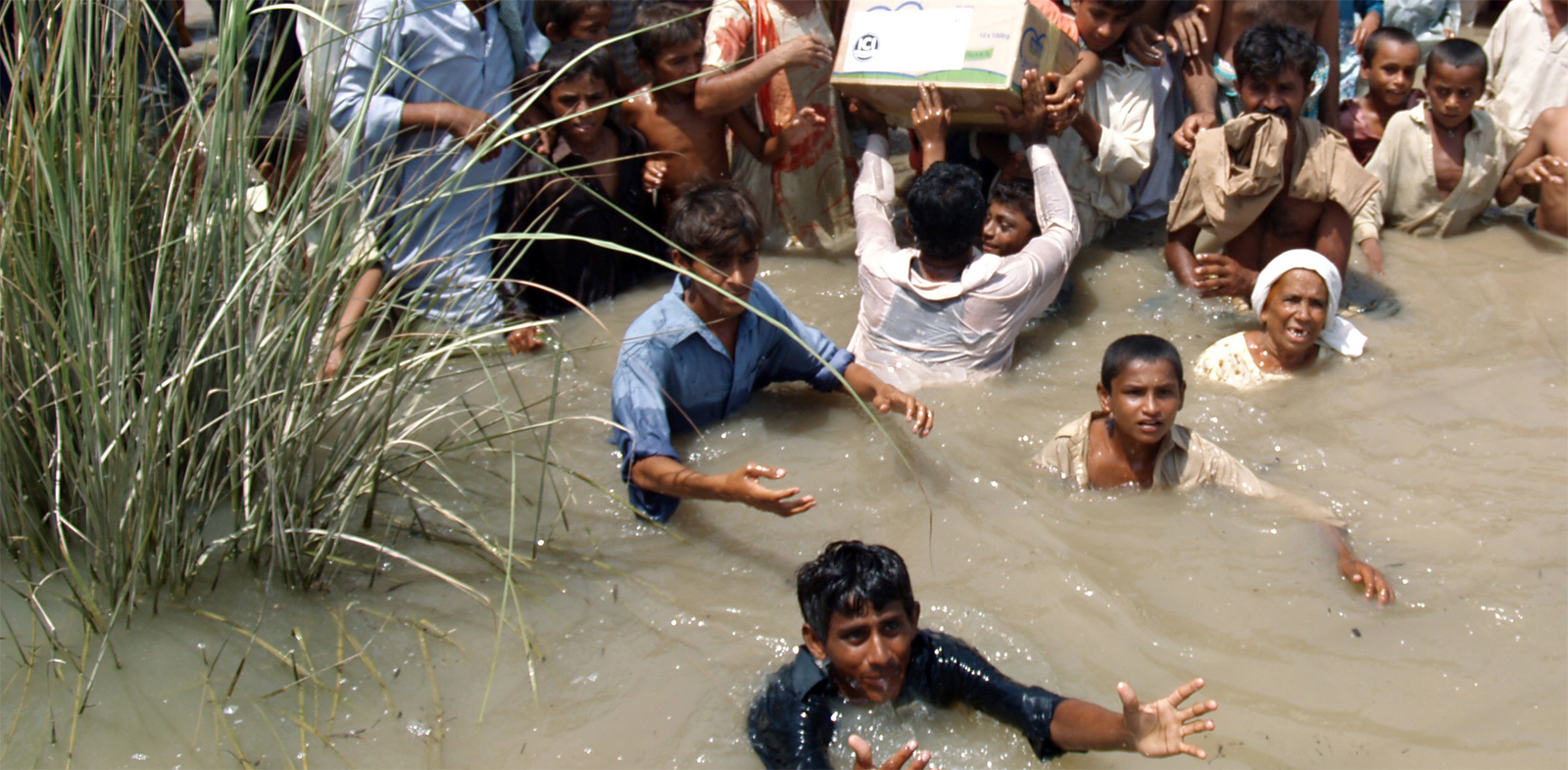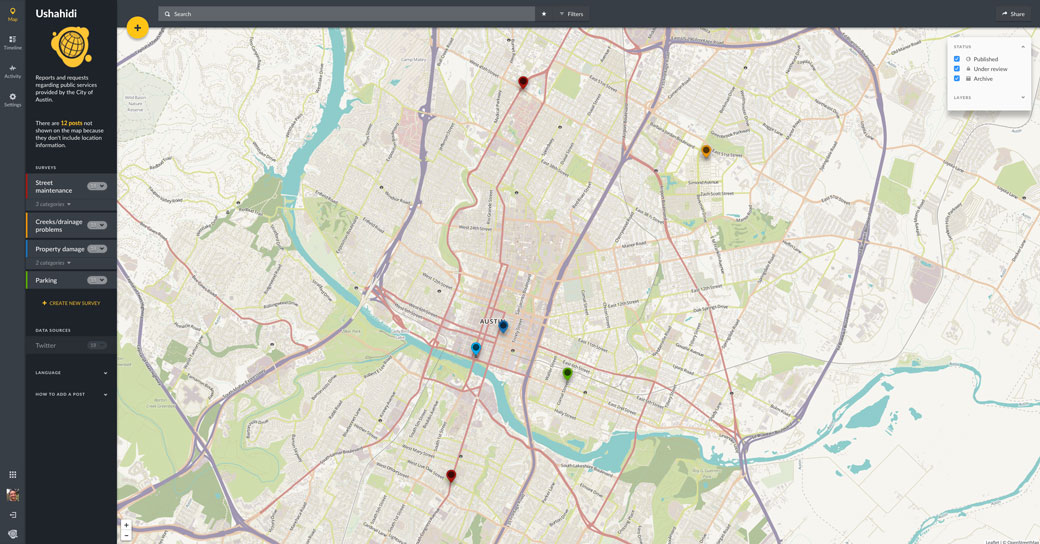This solution allows people, especially those on the ground, to make sense of information quickly and in a way that makes sense to them.
The Speed Evidence project was envisioned in 2010 after the Haiti Earthquake and Pakistan Flood. During those disasters, response teams had to work with slow and outdated data collection and management tools, which sharply contrasted with the large volumes of social media data coming from affected populations.
World Vision UK wanted to address this problem by creating a platform that could give a richer view of complex disaster situations. The solution had to aggregate contextual evidence from both response teams and social media in real-time, be able to receive data from SMS, social media, and websites, and allow users to filter and analyse reports easily.
They chose the Ushahidi platform V2 for this project, and the Ushahidi Solutions Team customized the existing software to work according to World Vision UK’s specifications. Every instance of Speed Evidence deployed can coordinate and share reports with other deployments, and one “meta” platform aggregates selected reports from all the other deployments. Ushahidi also created a bespoke dashboard with data visualizations and timeframe filters.
The Speed Evidence platform was made available for free to any organization or agency which needs to deploy it. The software has been used by, among others, a consortium of NGOs working in Somalia, and notably in the Philippines Typhoon Haiyan response.
Thanks to Ushahidi’s customized software, World Vision UK have gotten closer to their vision of a future where emergency first responders are equipped to collect, analyse, and present reliable evidence from multiple sources. The result is more effective, contextualised disaster response.


